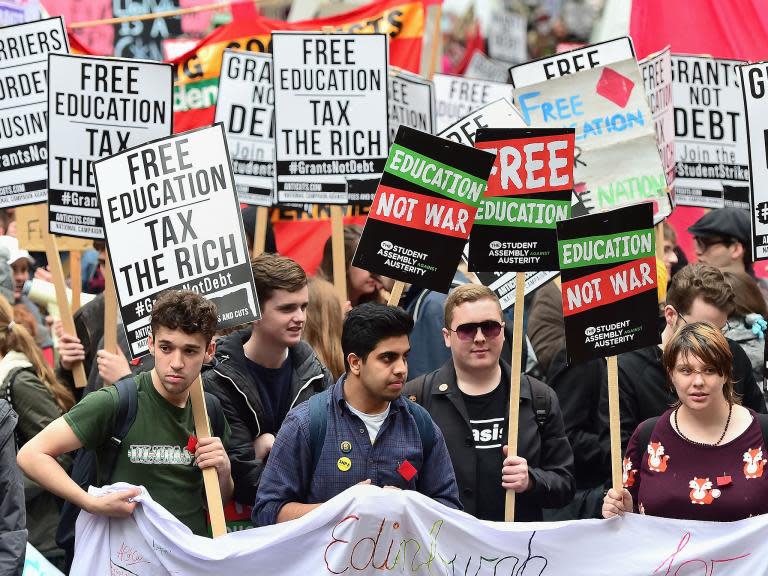Rich university students playing the system seems unfair – but scrapping tuition fees might not be more progressive
Wealthy parents are paying off the student loans of their lucky children. Meanwhile, less privileged kids face a working life of high debt and painful repayments. More evidence, surely, of growing inequality in the UK and the inherent unfairness of the university finance system?
That’s the conclusion of a new report by the Intergenerational Foundation called “Escape of the Wealthy”.
But is it justified? Actually, the picture is more complex.
Contrary to much commentary, the student loans system is actually “progressive” in the sense that graduates who go on to be higher earners pay back more than those who do less well economically.
This is because repayments do not begin until the graduate is earning more than £25,000 and the debt is written off if unpaid after 30 years.
“Under the current system, high-earning graduates make the highest student loan repayments and repay the largest proportion of their debt,” points out the Institute for Fiscal Studies.
This is also why it is the highest-earning graduates who stand to benefit most from a reduction in fees, something a government review of higher education is considering.
The same logic applies to abolishing tuition fees, which was in Labour’s 2017 manifesto. It would apply too to Jeremy Corbyn’s hint that a future Labour government could write off the post-2012 accumulated debt of graduates.
So if some wealthy parents are paying off their offsprings’ student loans upfront, the family is, arguably, foregoing the insurance of a debt write-off if their children turn out not to be relatively high earners.
They are also potentially missing out on the benefit of a debt write-off by a future government. Yet does this miss the point?
Isn’t the issue here that students without parental help to pay off their fees upfront will be at a financial disadvantage relative to those that do? Or that they will have a lower disposable income – less money for a pension, or a house deposit?
To some extent. But this is a symptom of unequal financial inheritance in general, rather than an inherent feature of the student loan system. Rich parents tend to help their children – one way or another. The appropriate solution here is a lifetime gift tax.
One of the inequalities that the Intergenerational Foundation and others find objectionable seems to be less economic and more psychological.
Students with wealthy parents will have no student financial liabilities hanging over them while others will, even if they never pay them off.
This may well be why some wealthy parents pay off their children’s fees upfront – they want them to start their working life with an unencumbered balance sheet.
Vince Cable, business secretary in the coalition that trebled tuition fees to £9,000 in 2012, argues this is largely a branding issue.
The Liberal Democrat leader suggests that if one were to relabel student loan liabilities a graduate tax – something that it already resembles in practice – this would shift the psychological framing.
“People don’t normally think of their future income tax obligations as debt. It’s that psychological thing that is quite problematic, and I would quite like to convert it into something that is not just a graduate tax in practice but a graduate tax in name and form,” he has said.
There may be something in that. There is certainly a strong case for students to receive more information about the average financial loan repayment burden they will face under the current system, to put some of those nominal debt figures into the right perspective.
Perhaps this information should be explicitly linked to the individual’s likely future earnings based on the course they took and the institution they attended, now that we have some useful indicative data on that front.
There is a case for a return of direct university maintenance grants (rather than maintenance loans) if the goal is to counter the debt aversion of poorer students and help less well-off families financially – especially as the government’s review of higher education is reportedly considering limiting access to loans by students with relatively weak A-level results, something likely to hit poorer families harder.
Whatever happens to student fees and university financing – and there is certainly a sense that the future of the system is up in the air – it would be unfortunate, to put it mildly, if the outcome was determined by emotion and misunderstanding rather than an appreciation of the facts.

 Yahoo News
Yahoo News 

